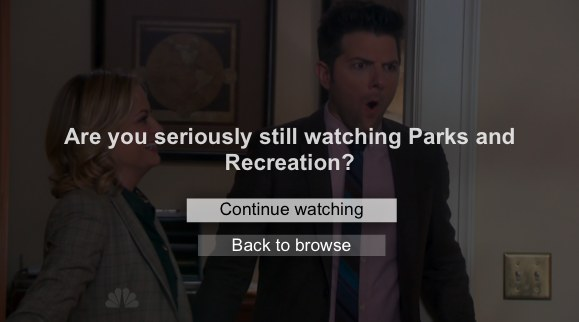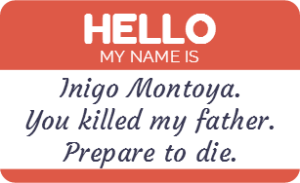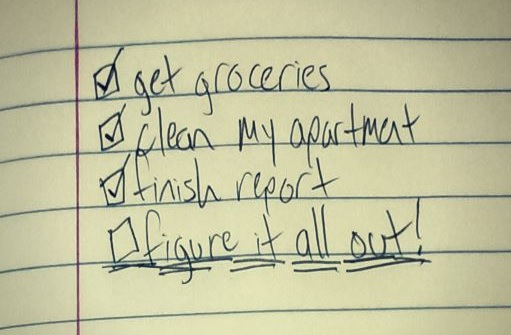psychology
Why The Hard Things To Do Are The Right Things To Do
We’re obsessed with success stories. We love to read about the latest IPO or overnight success and dream about it. We say “why can’t that happen to me?” while we sit on our couch covered in Doritos Locos Taco crumbs, getting annoyed when Netflix asks “are you still there?” Of course I am Netflix, now get on with the next episode of Parks and Rec.

Between episodes we look at our Facebook or Instagram feed and see our friends climbing a mountain or sitting on a beach somewhere. “Don’t they ever work? They got really lucky to get the job they have.” The last trip we took was to Iowa last year for a friend’s wedding, which was also the last time we negotiated a 3% raise at work.
Why do we expect extraordinary results when we’re doing the same ordinary things as everyone else?
What a hostel hangover taught me about finding purpose
I sit, engulfed by a beanbag chair in the communal living room of a hostel in Krakow, surrounded by young people from around the world. Everybody has their story. Where they’re from, how they ended up here, where they’re going next. British voices across the room talk about taking their gap year, while German voices recount how they’re traveling after finishing university.
I’m engrossed, listening to somebody who grew up a half hour away from me talk about how she quit her job and decided to travel Europe for as long as she can. She’s 24, maybe 25, but she has been traveling for six months already.
“How did you do it?” I ask eagerly. “How did you save up enough to pay for six months of travel? Other people are out there trying to get jobs and you’ve already had yours, quit and backpacked around Europe.”
I lean in to make sure I don’t miss the secret. Her answer surprised me, and it went on to help me discover what career I’d make for myself.
The Secret to Doing the Work You Love
Think about a typical day at work. Are you excited about what you’re doing, or are you dreading it and waiting to sneak out at 5? If the latter, you’re not alone. According to Gallup, 13% of workers worldwide are engaged at work while the other 87% are either not engaged or actively disengaged. That’s a lot of people spending a lot of time miserable at work. In the US the numbers are 30% and 70%. Better, but still not great odds for you and me.
We want to be in the 30% of people who are inspired and motivated and enjoy what they do! Not only because we’ll be happier at work, but also because people who are happier at work perform better and get recognized for it. But most of all, you’re going to spend half of your waking hours at work so you’d better find something you can tolerate. The alternative? Waiting it out and hoping that it’ll get better. You know the quote “the definition of insanity is doing the same thing over and over and expecting different results.” It may not have been Albert Einstein, but it still makes some sense here. It’s going to take a concerted effort to define and find the type of work that you thrive in.
We all agree that we want to be happy at work. Our whole lives we’ve been told “if you love what you do, you’ll never work a day in your life” or “follow your passion.” Those both sound great. On the other hand, they’re not actionable and they don’t tell us HOW to figure it out.
Five Techniques for Remembering Names (and what to do if you forget)
 The day I started my entry-level job out of college, myself and three other new consultants sat in a conference room together for the full day. We had all sorts of orientation presentations on the company, on benefits, on methodology and on client relationships. I introduced myself to the guy next to me – we’ll call him Mark. The next day we came in for orientation day round two and Mark asked me my name again. No problem! Then he asked me my name every day for the next week straight, at which point it got a little bit awkward.
The day I started my entry-level job out of college, myself and three other new consultants sat in a conference room together for the full day. We had all sorts of orientation presentations on the company, on benefits, on methodology and on client relationships. I introduced myself to the guy next to me – we’ll call him Mark. The next day we came in for orientation day round two and Mark asked me my name again. No problem! Then he asked me my name every day for the next week straight, at which point it got a little bit awkward.
Remembering names is enormously important. Dale Carnegie says “remember that a person’s name is to that person the sweetest and most important sound in any language.” Whether it’s somebody you were introduced to at a party or someone you meet at work, it’s a sign of respect and of listening to be able to remember their name. It’s certainly not easy and lots of people have a hard time with remembering names, so here are a few strategies for you to try out next time you meet somebody so you don’t end up embarrassing yourself.
The Lesson of the CEO and the fisherman: passion, cost and the invisible rules
I really like the story of a Wall Street CEO who visits Mexico with his family.
The CEO is looking to have a really fresh meal so he goes to the docks in the town and finds a man unloading his fishing boat with his morning haul. He buys a great looking fish and starts talking to the fisherman. The fisherman says “every day I fish for a few hours in the morning, then I eat lunch with my family, take a siesta, visit with friends, have dinner and go to bed.” The CEO says “Well if you fished for a few more hours every day you could buy a bigger boat. Then you could manage a team of fishermen and buy more boats and then move to the United States to manage your company. Then you could build your business until you can sell it to a major company and retire!” The fisherman ponders that for a second. “What would I do after that?” he says. The CEO responds “It would be great! You could move to a tropical village. You could fish for a few hours, eat lunch with your family, take a siesta, visit your friends, have dinner and go to bed.”
I feel like I read this story in either The Four Hour Work Week or The E-Myth, but I love it and there are a few lessons we can take from it.
The Instant Way to Forgive, Feel Better and Live Longer
Think of a time when someone did something that upset or hurt you. When was it? What did they do? How did you feel about it? If you can feel your blood boiling, you’re not alone. But it’s important to know that this frustration affects you psychologically and physically.
According to the Mayo Clinic, people who are less forgiving are more prone to depression, anxiety and strained relationships with others. All of those affect your psychology every day. Although they’re psychological reactions, they cause long-term stress that can be damaging to your health. Interestingly, three researchers from Luther College, Duke University Medical Center and Harvard Divinity School studied the life-threatening effects of certain types of forgiveness (or a lack thereof).

